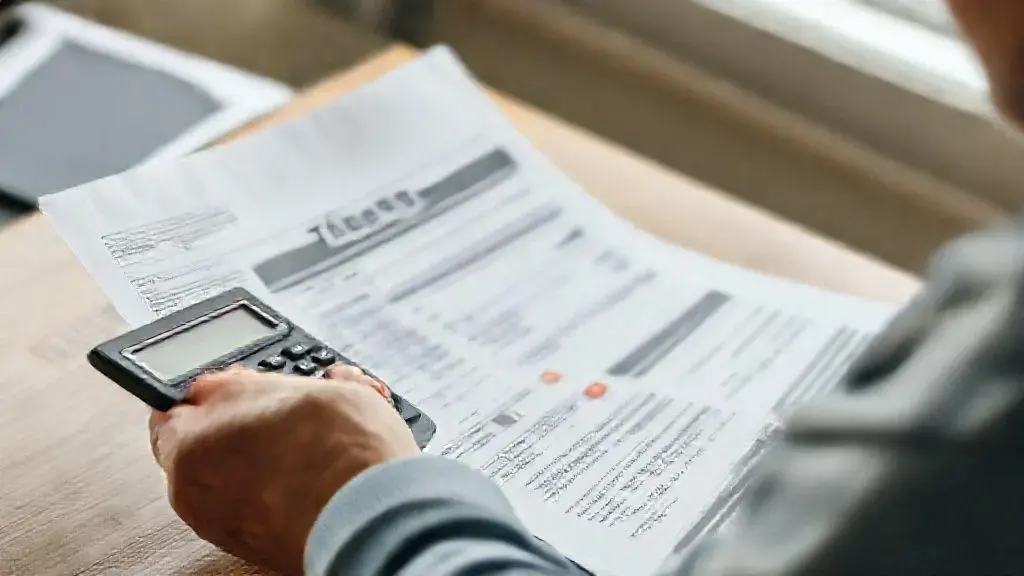Tax-saving tips to maximize your annual refund legally

Tax-saving tips to maximize your annual refund legally include understanding deductions, avoiding common pitfalls, maintaining accurate records, and maximizing employer contributions to retirement accounts.
Tax-saving tips to maximize your annual refund legally are essential for anyone looking to make the most of their finances. You ever thought about how much more you could get back with just a bit of planning? Let’s dive in!
Understanding tax deductions and credits
Understanding tax deductions and credits is crucial for anyone looking to optimize their financial situation. These tools can help you reduce your taxable income and potentially increase your refund.
What are Tax Deductions?
Tax deductions lower your total taxable income. By claiming these deductions, you pay taxes on a smaller amount of money. This means more savings in your pocket.
- Common deductions include mortgage interest.
- Charitable donations can also be deducted.
- Medical expenses may qualify for deductions.
- Education-related costs might reduce your taxable income.
An important point about deductions is that they may vary depending on your filing status. Understanding the differences can help maximize your savings. If you’re unsure about which deductions to claim, consulting with a tax professional can provide valuable insights.
What are Tax Credits?
Tax credits, on the other hand, directly reduce the amount of tax you owe. Unlike deductions, which reduce taxable income, tax credits provide a dollar-for-dollar decrease in tax liability.
For instance, if you owe $1,000 in taxes and qualify for a $200 credit, you would only owe $800. That’s a significant benefit!
Some well-known tax credits include:
- Earned Income Tax Credit (EITC).
- Child Tax Credit.
- American Opportunity Credit for education costs.
- Lifetime Learning Credit for further education.
Understanding both deductions and credits lets you take full advantage of the tax laws. Each year, it’s essential to review your financial situation to ensure you’re not leaving money on the table.
Tips for maximizing your contributions to retirement accounts

Maximizing your contributions to retirement accounts is essential for securing your financial future. This process not only helps build your savings but can also provide significant tax benefits.
Understand Your Contribution Limits
Every retirement account has specific contribution limits set by the IRS. Knowing these limits is crucial to making the most of your contributions. For example, in 2023, you can contribute up to $20,500 to a 401(k) plan, or $6,500 to an IRA.
- Check your account type to know the exact limits.
- Catch-up contributions are available for those aged 50 and older.
- Adjust your contributions each year to match annual limits.
You should also monitor any changes in contribution limits every year, as these can vary based on inflation or other factors.
Utilize Employer Matching Contributions
If your employer offers matching contributions, take full advantage of this benefit. Matching contributions are essentially free money that can significantly boost your retirement savings.
Make sure you contribute enough to get the full match. For instance, if your employer matches 50% of your contributions up to 6%, aim to contribute at least that much. This strategy maximizes your savings potential without any extra cost to you.
Consider increasing your contributions during annual salary increases or bonuses. This practice can help you stay on track without impacting your current budget.
Additionally, automating your contributions can make the process easier. Setting up automatic transfers to your retirement account ensures consistent and disciplined saving.
Take Advantage of Tax Advantages
Retirement accounts like 401(k)s and IRAs come with various tax advantages. Contributing to a tax-deferred account means you won’t owe taxes on your contributions or earnings until you withdraw them in retirement.
By choosing a Roth IRA, your contributions are taxed upfront, but your withdrawals are tax-free in retirement. This choice can lead to substantial savings in the long run, especially if you expect to be in a higher tax bracket later.
Invest time in understanding these tax implications to create a retirement strategy that aligns with your financial goals.
How to keep accurate records for tax season
Keeping accurate records for tax season can significantly ease the filing process and ensure you don’t miss out on valuable deductions. Organizing your financial documents throughout the year is the first important step.
Start with a Filing System
Having a systematic filing system helps you store important papers efficiently. Consider creating separate folders for various categories, such as:
- Income Documents: Pay stubs, W-2s, and 1099s.
- Expense Receipts: Receipts for charitable donations, medical expenses, and business costs.
- Investment Records: Documents related to stocks, bonds, or retirement contributions.
- Homeownership Papers: Mortgage statements and property tax records.
Label these folders clearly and keep them in a dedicated area, either physically or digitally, to make retrieval easy when tax season arrives.
Use Technology to Your Advantage
Modern technology offers tools that can help you maintain accurate records more efficiently. Software programs like QuickBooks or tax-specific apps can track income and expenses.
These tools also allow you to scan and upload receipts, keeping your records organized without clutter. You can categorize expenses quickly, which simplifies the preparation of your tax return.
Consider using cloud storage services for additional backup, ensuring that you always have access to your records even if you misplace physical copies.
Regularly Review Your Records
Don’t wait until tax season to examine your records. Regularly reviewing them throughout the year can help you catch any mistakes early. Check that all receipts are correctly labeled and categorized.
This practice also helps you stay aware of your financial situation, allowing you to make adjustments as needed. Plus, if you notice missing documents, you can retrieve them quickly.
Accurate record-keeping not only supports your tax filing but can also be beneficial if the IRS ever questions your returns. Having everything organized and accessible will make the process far less stressful.
Common tax pitfalls to avoid for a bigger refund

Understanding common tax pitfalls can help you avoid mistakes that could reduce your refund. Being aware of these issues ensures you maximize your benefits each tax season.
Missing Deadlines
One of the biggest errors taxpayers make is missing important deadlines. The tax filing deadline each year is usually April 15. Failing to file on time can result in penalties and interest.
- Mark your calendar for important dates.
- Consider filing for an extension if needed.
- Set reminders to stay on top of your deadlines.
By being proactive about your deadlines, you reduce stress and potential issues with the IRS.
Overlooking Deductible Expenses
Many taxpayers miss out on valuable deductions simply because they are unaware of them. Expenses such as health care costs, certain educational expenses, and even some job-related costs can be deducted.
Keep a careful record of your financial history. Review past tax returns to see what deductions you claimed or missed. This awareness can significantly affect the size of your refund.
Not Keeping Accurate Records
Good record-keeping is crucial for maximizing your refund. Ensure you maintain complete records of your income, expenses, and any supporting documents related to deductions.
Use digital tools to store documents securely. Keeping things organized helps you avoid last-minute scrambles to find important information when you file your taxes.
Filing Status Errors
Choosing the wrong filing status can impact your tax rate and deductions. Review the different options, such as single, married filing jointly, or head of household, to determine the best status for your situation.
Wrongly selecting a filing status can lead to missing deductions or even overpaying taxes. Always double-check your choices before filing.
By avoiding these tax pitfalls, you can ensure you retain more of your hard-earned money and enhance your chances of a bigger refund.
FAQ – Common Tax Tips for Maximizing Your Refund
What are some common tax deductions I might be missing?
You may be missing deductions for medical expenses, home office expenses, and charitable donations. Keeping track of these can increase your refund.
How can I avoid missing tax deadlines?
Mark important dates on your calendar and set reminders to ensure you file your taxes on time. Consider filing for an extension if necessary.
Why is accurate record-keeping important for taxes?
Accurate record-keeping helps ensure you can claim all eligible deductions and avoids complications with the IRS. It also makes the filing process smoother.
What should I do if I realize I’ve made a mistake on my tax return?
If you find a mistake, you can file an amended return using Form 1040-X to correct any errors and possibly reclaim a larger refund.





